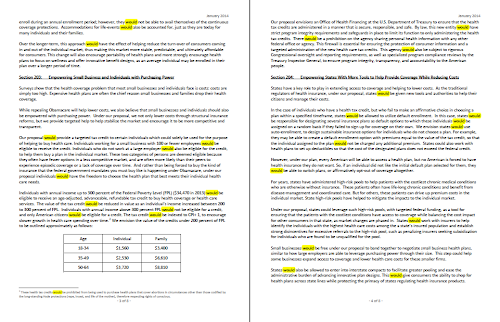This is not how you write a serious policy proposal
Matthew Martin
1/28/2014 02:07:00 PM
Tweetable

Folks, take it from a former publisher--this is not how you write a serious proposal. When the entire proposal is in the subjunctive, it becomes hard for readers to discern the actual actions that the proposal does by legislative fiat (eg "this proposal would prohibit denying insurance based on pre-existing conditions"), versus intended effects of the actions in the proposal (eg "this proposal would limit the growth in healthcare costs"). I presume that when Senators Coburn, Hatch, and Burr say that their proposal would reduce healthcare costs, they aren't saying that the proposal legally proscribes insurers and hospitals from increasing prices, but the language they used makes no distinction between the actual actions of the proposals and the hypothetical effects of those actions, making it very hard to do meaningful policy analysis of the proposal.
And what infuriates me about these kinds of proposals is that I'm fairly certain this is deliberate. Writing a proposal in the subjunctive is a parlor debate trick--it keeps the actual actions of the proposal vague and ambiguous in order to allow the authors to shift ground whenever opponents criticize it.